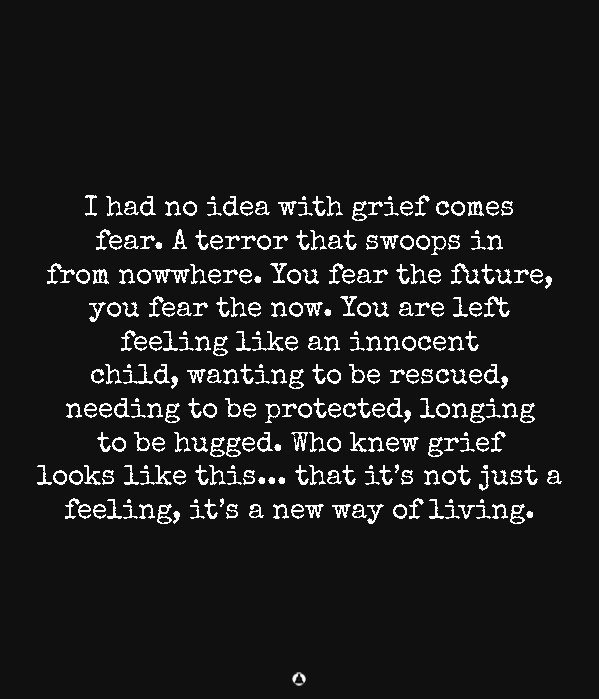When we hear the word “grief”, we immediately think of an emotional state that occurs after the death of someone we love. However, that is only a narrow understanding of it because it doesn’t include all the situations and experiences that trigger grief in people.
Here are 4 types of grief that we experience as humans and yet no one talks about them.
1. Grieving Over the Loss of Identity/Lost Sense of Self
Examples of this type of grief: when a person is going through a breakup or a divorce and they no longer are being identified as someone’s “partner” or “spouse”; when a parent whose children have grown up and left their home grieves their lost identity of parenthood; when a breast cancer survivor mourns her lost of femininity after the mastectomy; when someone who has lost their job grieves their loss of identity with the job etc.
When we lose our primary identity, we start grieving our lost sense of self. We lament who we thought we were and begin to create a new story for ourselves that involves our loss into our personal narrative. In some cases, however, we feel that we have been robbed of our identity – as for instance, the breast cancer survivor or the person who goes through a divorce.
For those individuals, the grief they are going through is intensified because of their sense of lack of control they had over their situation. On the other hand, those individuals that chose to shed their identity by switching jobs and career paths feel as if their grief is compounded by the uncertainty of leaving something that they know they will mourn later. But they may feel like they should not be grieving because it was their decision after all.
2. Grieving Over the Loss of Safety/ Lost Sense of Physical, Emotional, and Mental Well-Being
Examples of this type of grief: when families experience instability or are getting evicted; when the members of a community feel unsafe and unprotected due to violence that has happened; when children of divorce mourn the loss of safety; when survivors of sexual, emotional, or physical trauma no longer feel safe in their day to day life; when someone discovers that their romantic partner has been unfaithful and so they feel unsafe in their relationship etc.
One of our basic needs is feeling safe in our homes, relationships, workplaces, and communities. When we feel a sense of loss of safety, be it emotional or physical, we will inevitably have feelings of grief and become extremely sensitive even if there is no real danger involved.
3. Grieving Over the Loss of Autonomy/ Lost Ability for Managing One’s Own Life and Affairs
Examples of this type of grief: when a person goes through a financial setback and feels as if they lost their autonomy because now, they need to rely on the help of others; when a person struggling with a deteriorating illness grieves over the loss of their cognitive and physical abilities; when an elder who is no longer capable of taking care for themselves mourns their decline etc.
This kind of grief is touching every person’s basic need of being able to manage their body and life. When we experience this kind of loss, we mourn our lost sense of control over ourselves and our life. Moreover, we lament the loss of our ability to function and our independence. We are slowly accepting the cold truth that we are only mortals and that leaves us with feelings of despair and failure.
4. Grieving Over the Loss of Dreams and Expectations/ Unfulfilled Hopes and Dreams
Examples of this type of grief: when a couple or a person struggles with infertility; when someone’s career path doesn’t fulfill their expectations; when an overachieving student struggles to find their place in this world etc.
When we experience this kind of grief, we often feel disoriented. Most of us go through life with perception and vision of how our lives should look like. However, when life events turn for the worse and our expectations get shattered, we feel a deep sense of failure, unfairness, and grief. For instance, the overachieving student who can’t find their place in the real world may start comparing themselves with others and feel like a failure because they didn’t get the outcome they expected.
Grieving Properly
Grieving over such losses is a normal process which can help us work through the chaos and get out of it stronger and more resilient. Therefore, it’s essential that we understand that we are entitled to feeling sad, numb, angry, or disoriented.
Moreover, we should not forget to be gentle and compassionate to others who are mourning.
Give them permission to grieve.
Their loss is real.
Your loss is real too.
I give you permission to grieve.
Let’s all be there for one another.



